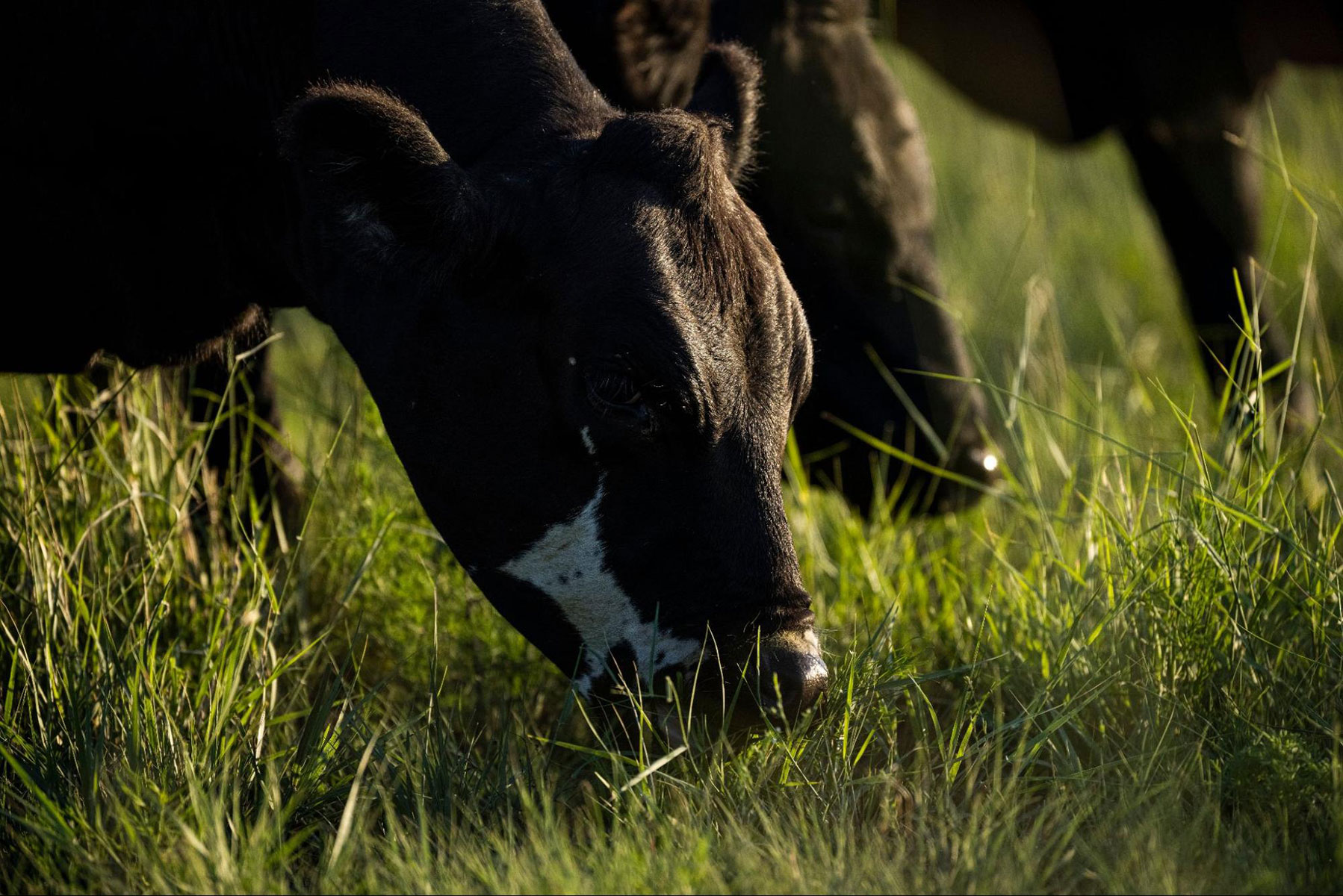Excellent beef starts with happy and healthy cattle. Just like humans, cows need a diverse and hearty diet. Providing cattle with proper nutrition is essential both for the animal’s quality of life and for the quality of the beef. As ranchers, the importance of cattle nutrition integrates into our daily lives, but we realize that our community of butchers, grill masters and steak connoisseurs might not be as familiar. Here, we will break down the core tenets of cattle nutrition and how it supports the quality of meat and the sustainability of beef ranching.
Why is Cattle Nutrition Important?
Raising healthy cattle doesn’t just mean fattening them up. They need to live happy and healthy lives. Proper nutrition plays a crucial role in both boosting their immune health and supporting their reproduction. For bulls, proper nutrition supports fertility, but the benefits of a rich diet start at birth. Calves need plenty of high-quality food to grow at a healthy rate and be more resilient to disease. If the mother isn’t getting the proper feed mix, she can’t pass along the right nutrients to support her calf with good milk. In particular, the first milk, called colostrum, needs to be incredibly nutrient-dense to support the calf’s development and immune system.
A Diverse Diet Pays Off in Delicious Cuts of Meat
Cattle need a mix of nutrients in their diets and a plentiful water source. A proper balance of grasses, grains and forages will provide the right proportions of carbohydrates, proteins and fats. But it’s not only important for the cattle. Different feed types affect the quality of meat. Here, we go over the critical parts of cattle health and how they affect the cut of beef.
Grass
Grass is the foundation of cattle nutrition—they spend most of their lives in the pasture. Organic, native grasses help cattle develop a healthy gut biome and have better digestion. The amount of grass in a cow’s diet also affects the type of fat in the meat. Pasture-raised animals, like cattle, have a higher percentage of heart-healthy omega-3 fatty acids.
Grain
The term grain-finished means that the cattle are fed a rich variety of grains during the last six to eight months of their life. This access to a more energy-rich diet promotes growth and results in beautifully marbled cuts of beef.
Forage
Apart from grasses, cattle eat other types of forage in the pasture. At Ribbonwire Ranch, we grow fields of organic alfalfa that are high in protein and easy for the cattle to digest. Our animals are free to eat a mix of forages and grains straight from our own fields.
Mineral
Cattle need a wide variety of minerals in their diets. While the native grasses in the pasture provide a lot of these naturally, most ranchers provide mineral supplements to their cattle to prevent potential deficiencies.
Committed to the Health of the Land, the Cattle, and Our Patrons
Our love for good food starts with a love of the land. At Ribbonwire Ranch, we believe in providing our community with the highest quality beef, and we believe in animal welfare. Our cattle graze on abundant and picturesque pastures and enjoy a mix of organic native grasses, hearty grains and nutritious forages. Try one of our premium cuts of organic beef to taste the difference that curated cattle nutrition makes.

